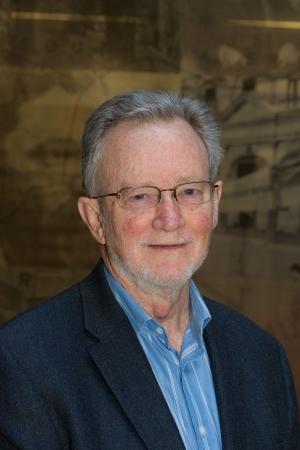Universities in the Digital Century
Research news
The “Asian Century” thrust of our Prime Minister could end like most White Papers.
Or it could be an engine of real change away from government driven industry towards an array of creative and competitive structures.
The key is independent, internationally focussed financing and unbundling of bureaucracies, particularly around creating vibrant education focused on core competences of students and strategic niches of knowledge.
This would be built around a diversity of funding and responses to the aspirations and choices of individuals, via scholarships and educational loans to students with abilities and disabilities, across age and working groups. Our existing “dead assets”, to quote Hernando de Soto, including much prime city real estate currently the home of University campuses around Australia, could finance elements of global decentralisation of information and educational institutions.
And working together, a sometimes novel idea in academic administration, our current universities could cooperatively and competitively seek these quality outcomes.
By allowing asset ownership reform and educational unbundling as part of the financing and quality control package, we can break out of the “Moscow on the Molonglo” model of tertiary education that has bedevilled us for so long - to quote Professor Max Corden. The domestic financing component of the intellectual energy sector could be financed internationally along the lines of the electrical energy sector under the Victorian government headed up by Jeff Kennett and his treasurer, Alan Stockdale.
Theirs was a set of researched reforms that armed the government with $40 billion of cash for purposes other than owning electricity generators, the proper domain of specialist corporations. The analogy is powerful. With the generation, distribution and transmission of knowledge and education treated to global, competitive and cooperative resources, we could join and in many ways lead the transformation and distribution of knowledge in the digital age - and tune our institutions free of locational hang-ups.
The management process of our universities could at last be separate from government, as with the better universities in the US and the UK. Governments could join benefactors at home and abroad in tailoring our educational, residential and vocational experiences to what is sought by those paying in cash, kind or scholarships, or those needing special skills in their firms, industries and families.
Government financing of students whether via scholarships, HECS loans, investments from foreign governments and universities according to national taxpayer funded choices, would of course mean the funding of facilities indirectly.
But those buildings, residences, part businesses, retreats, camps, or universities afloat, would now have the character of a chosen premise, a preferred option, not some result of a score, a tick and a remote bureaucrat’s allocation or centralised building acquisition.
True, the residential process, the tutorial and the face-to-face Socratic dimensions to education are essential and could be funded as asset disposal starts. And as courses are increasingly satisfying to students, teachers and employers, and as we rely more on preferences than quotas, caps and rules.
The information transmission process itself, including the digital revolution is already on - but our universities are bogged down with “dead capital”, and all too lively bureaucracies. How some of our asset rich educational institutions should respond is far from clear in the White Paper or other policy papers, such as the Bradley Report. In any case, we do not want government to be prescriptive but facilitating. But we do want to free capital tied up in land and buildings. One model could be a public-private-partnership of a Victorian, Chinese and US university, with a local equity contribution financed by asset sales of the Victorian University.
This suggested fresh approach amounts to a sketch of a deregulatory movement that is happening, but that could achieve higher productivity and creativity and be digital game changer. Funding from taxpayers will not cease, but could be more modest and towards student scholarships and research grants, not institutions.
While loan arrangements such as HECS make sense, and could extend to knowledge acquisition throughout life, financed even by estates, the financing options should also draw on other restructures and reforms that have worked elsewhere.
Intellectual energy should no more be confined to government capital structures than should energy, irrigation or manufacturing choices. Our capital base should be made to work for us, not tie up resources. Universities should be the hospitable ‘fire power” stations of the information age.
One model to achieve this could be an invitation from state owners to the enlivened boards and vice-chancellors to package partnerships, residential experience across the globe, work experience and research programs so that lower cost, higher quality outcomes are delivered. Australia is enormously attractive for joint appointments from the Americas and Europe. Indeed, when I explored the scope for a private University option in the end 1980s, my visits to a dozen campuses and graduate schools revealed top academics in the US and Europe eager for a global approach from an innovative “Downunder U”.
In that experiment, the death warrant was served by John Dawkins, who was busy amalgamating and reclassifying most educational institutions as “universities”, all taxpayer financed. True more were admitted to tertiary education - but quality and competitiveness went down market - many exited academia.
In the “Asian Century”, but with Europe and the Americas also keen to work alongside us, the time is now right to take Australia’s education sector back up-market.
You can access more of Michael's work as well as audio recordings, and multi-disciplinary approaches to policy-making at The Deakin Policy Forum.
Share this story
 Prof Michael Porter
Prof Michael Porter
